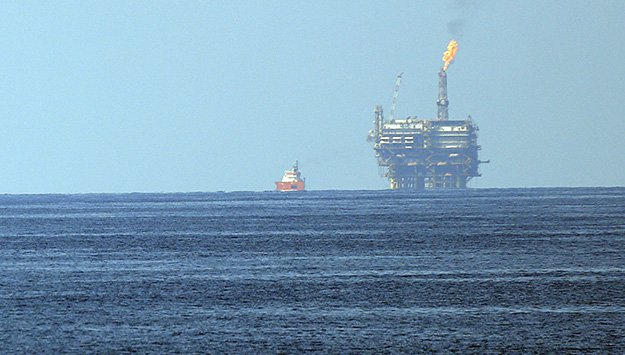Cyprus, Egypt sign gas pipeline agreement
20.09.2018 UNCATEGORIZED
Egypt and Cyprus on Wednesday signed an agreement for the construction of an underwater pipeline to export natural gas to Egypt.
The deal was signed at the presidential palace by Energy Minister Yiorgos Lakkotrypis and Egypt’s Oil Minister Tarek el-Molla.
Lakkotrypis said the agreement aimed at ensuring the timely and safe development, construction, and operation of an underwater pipeline directly to Egypt through the two countries’ exclusive economic zones.
The agreement is meant to facilitate the mooted construction of a pipeline from Cyprus’ Aphrodite gas field — estimated to contain around 4.5 trillion cubic feet (130bn cubic meters) of gas — onto Egyptian shores and then to the LNG facility in Idku.
It can also apply to other gas fields that may be discovered off the island in the future.
It has nothing to do with matters like the price at which the gas would be sold. This commercial aspect is strictly up to the companies owning the Aphrodite gas (Noble Energy, Delek, Shell) and the LNG plant in Egypt.
In the meantime, the companies with a stake in the Aphrodite play have demanded a revision of the revenue-sharing agreement with the Cypriot state.
Last month, the government agreed to renegotiate the Production Sharing Contract, or PSC, for Aphrodite.
Lakkotrypis described Wednesday’s signing as a landmark for the entire region and not just Cyprus.
“It constitutes one more critical step for our country towards the effective exploitation of undersea wealth in the Cypriot EEZ to benefit all Cypriots,” the Cypriot minister said. “Ultimately, through reexporting gas from Aphrodite in the form of LNG, the pipeline will enable the transport of the first quantities of natural gas from the eastern Mediterranean to the EU.”
The Egyptian minister hailed the agreement as a positive step towards the commercial exploitation of Cypriot reserves and encourage further exploratory activity in the region.
“The energy reserves in the Mediterranean basin can act as a catalyst for further co-operation in the area,” el-Molla said.
Head of International Relations & Enlargement at the European Commission’s Directorate-General for Energy, Anne-Charlotte Bournoville, emphasized the importance and the role that natural gas could play in the region, providing countries with the opportunity to bolster their energy security and their economies and develop strong bonds of regional cooperation.
